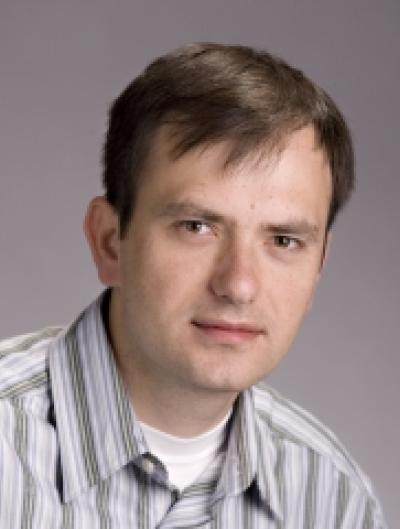Dmitri Strukov
Associate Professor
Electrical & Computer Engineering

Research
In general, Dmitri Strukov is broadly interested in physical implementation of computation, including device physics, circuit design, and high-level architecture, with emphasis on emerging device technologies. In particular, his main focus is on "CMOL" (standing for Cmos + MOLecular-scale devices) variety of hybrid nanoelectronic circuits. The basic idea of such circuits is to combine the advantages of the CMOS technology including its flexibility and high fabrication yield with those of ultra dense stackable crosspoint devices, e.g. those based on resistive switching phenomena. The nanoscale devices are naturally incorporated into the crossbar fabric enabling very high functional density at acceptable fabrication cost. Detailed simulation results have shown that CMOL circuits not only can provide orders of magnitude improvements in density of digital memories and reconfigurable logic circuits over conventional end-of-the-roadmap counterparts, but also for the first time enable implementation of large scale neuromorphic networks for advanced information processing. Currently our group is working towards experimental demonstration of CMOL circuits.
Biography
Prior to joining UCSB Dmitri Strukov worked as a postdoctoral associate, first at Stony Brook University 2006-2007, and then at Hewlett Packard Laboratories 2007-2009 on various aspects of reconfigurable nanoelectronic systems, including resistive switching ("memristive") device modeling, circuit architectures, and design automation tools, for applications in digital memories, programmable logic, and in neuromorphic networks.
Education
MS: Applied Physics & Mathematics, Moscow Institute of Physics and Technologu (1999)
PhD: Electrical Engineering, Stony Brook University (2006)
Contact
5153 Harold Frank Hall
University of California, Santa Barbara Santa Barbara, CA 93106-5080